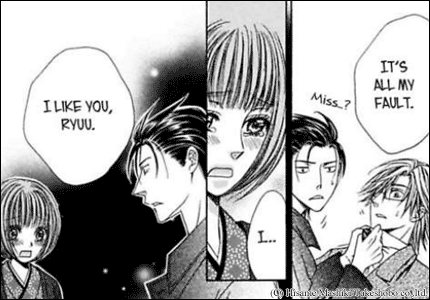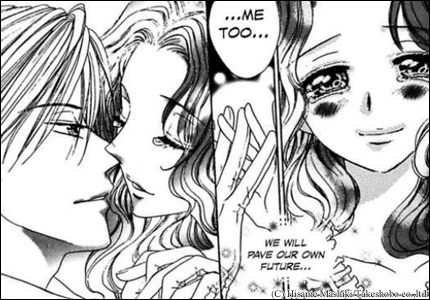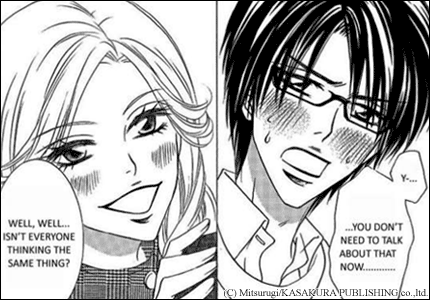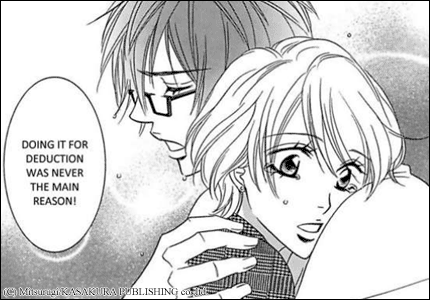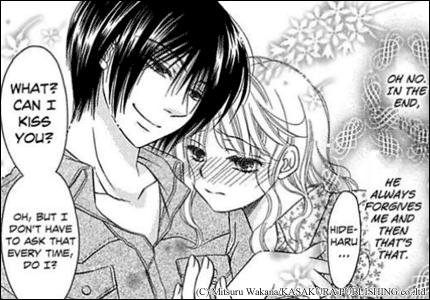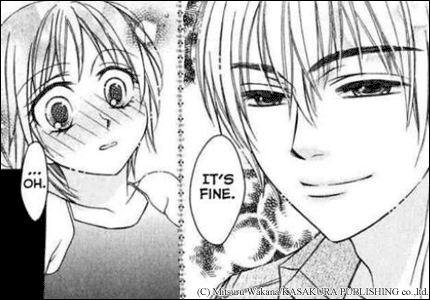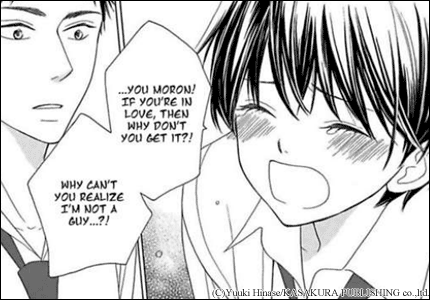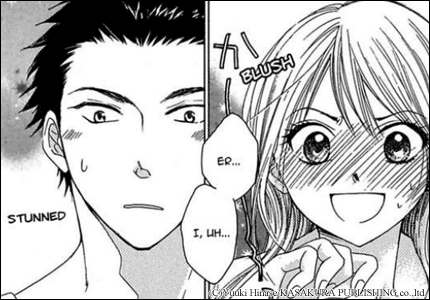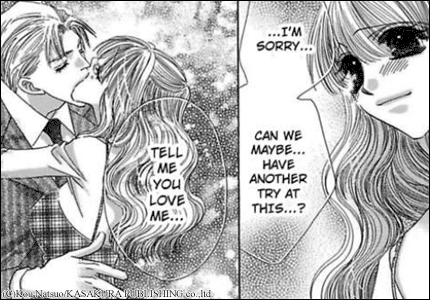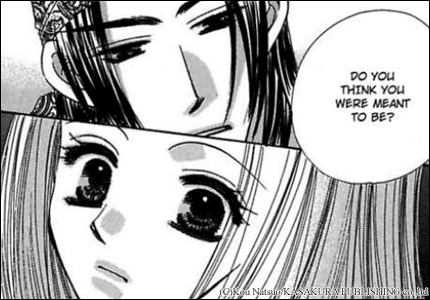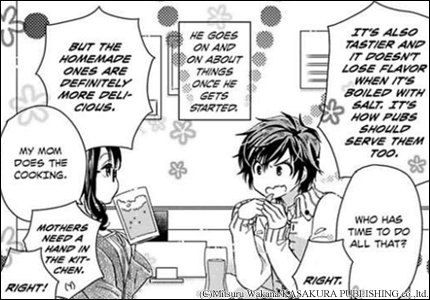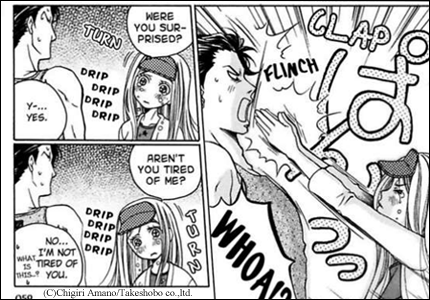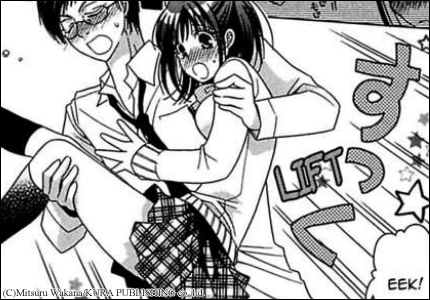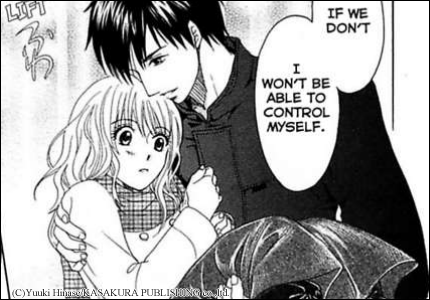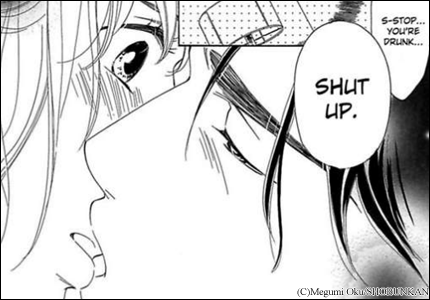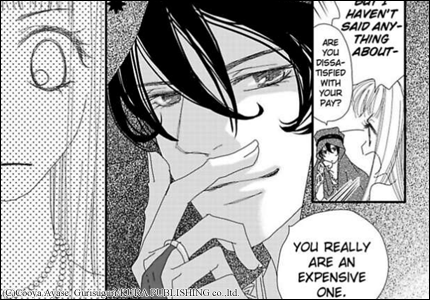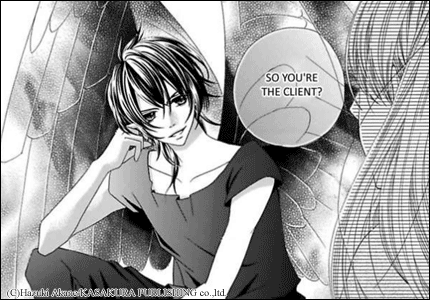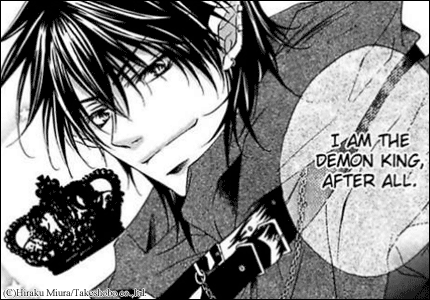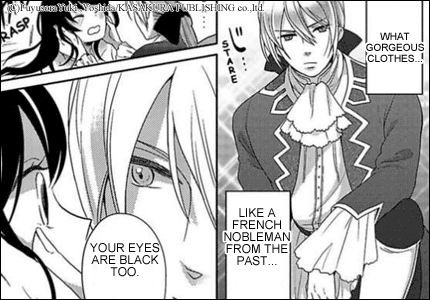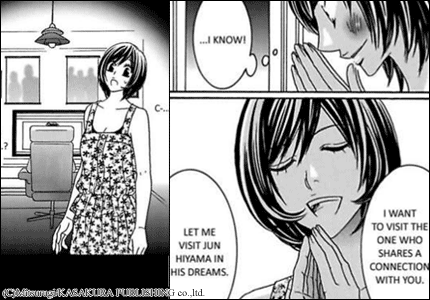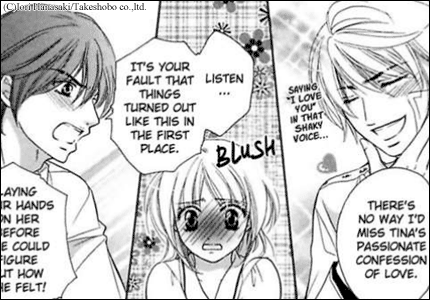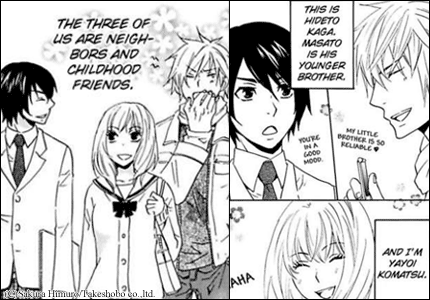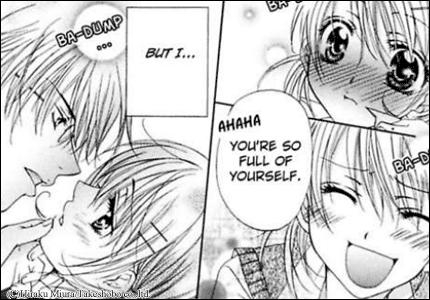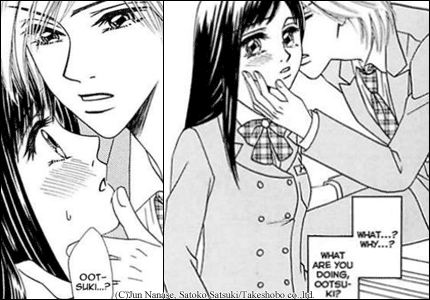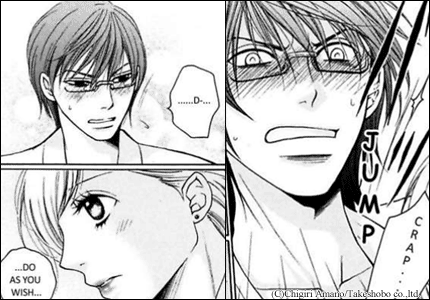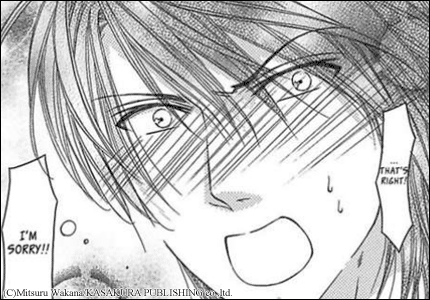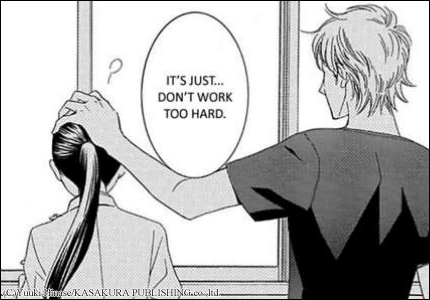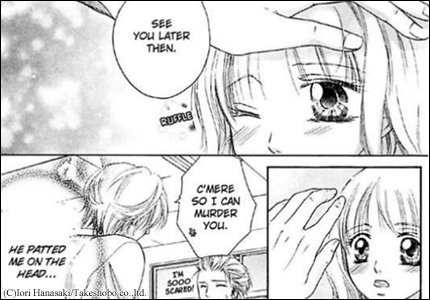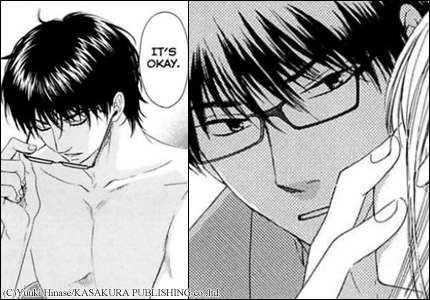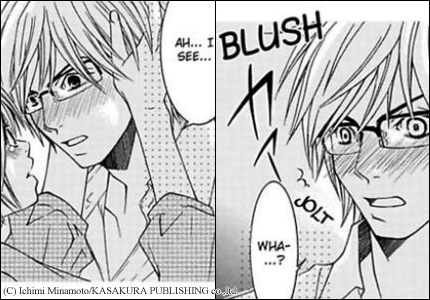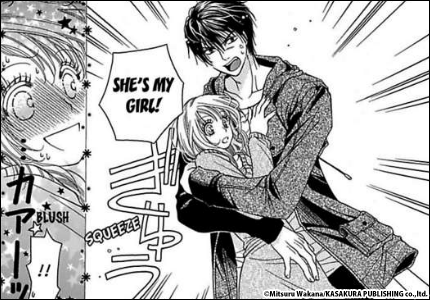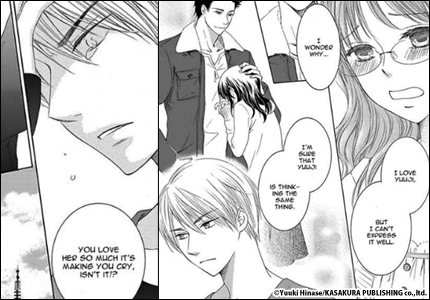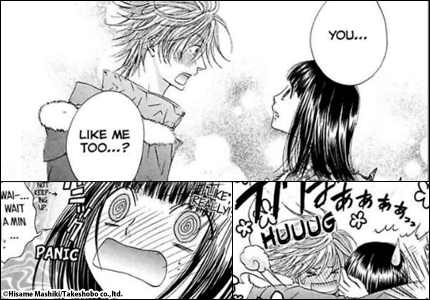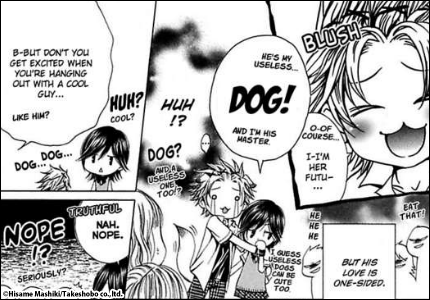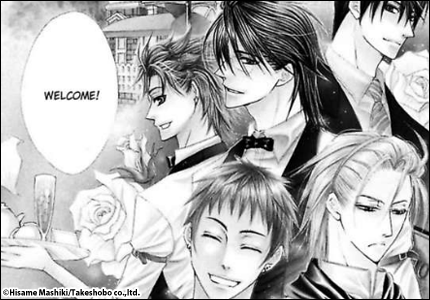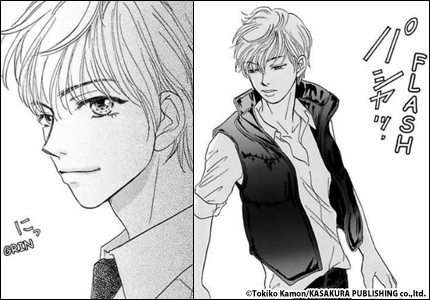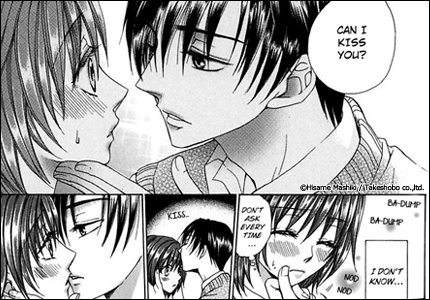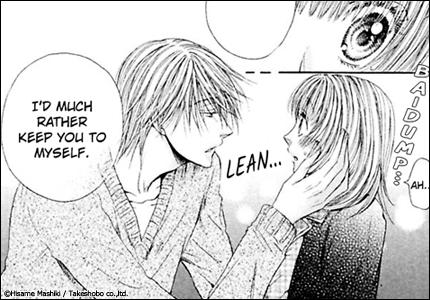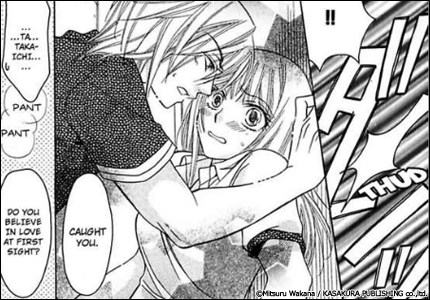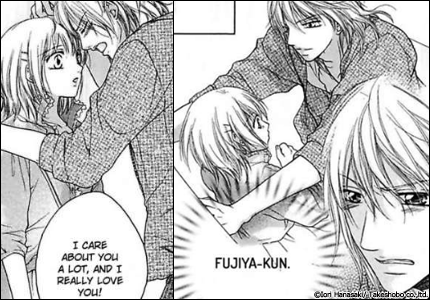Magnificent Manga Trivia
Do you know your kabe-don from your ata-pon? How about your Mitsurugi from your Mashiki? Or even your Kasakura from your Takeshobo? Every week, we'll be introducing to you fascinating phrases, scintillating scenarios, tremendous tropes, awesome authors, and popular publishers. We're hoping to deepen your knowledge and love of the magnificent world of manga.
Hisame Mashiki
This week we'd like to introduce you to Hisame Mashiki, who beautifully blends all the complicated elements of romance into their manga and balances it perfectly. (One of the manga even made a translator or ours cry!) The intricately constructed words and depth of the stories shine through everything they write, making these manga a must-read for Sweet-Love fans. What's more: The sexiness, passion, and unwavering love of the heroes will make your heart pound! Step inside the exciting world of Hisame Mashiki.
E.g.)
Mitsurugi
This week, we have for you the creator of the immensely popular 'You're an Aphrodisiac', Mitsurugi. No matter what the manga, all her characters have a certain charm, and unlike a lot of Sweet Mature Romance Manga the heroin is usually as feisty as the hero, who can be anything from a gang member to an erotic detective! You won't get bored with the settings either, with butler cafes and even hot male-delivery services, too! Mitsurugi's works are full of life and humor, making them a must for fans of the Sweet Love genre.
E.g.)
Mitsuru Wakana
Is there anyone who can write about young love better than Mitsuru Wakana!? They create manga that capture the unbound and raw energy of youth, and also that sad, bitter-sweet feeling we've all felt when we were young and in love. These works are so easy to read that once you start you won't be able to stop! Another interesting thing about this author is that characters from their other works sometimes make appearances, so it's like Mitsuru has created an entire world. Step into that world and enjoy the rollercoaster of emotions that go hand in hand with young love.
E.g.)
Yuuki Hinase
This week's featured author is Yuuki Hanase. Some of my (Staff: Yamada!) favorite manga were written by her. I love her illustrations more than anything, though of course I think her sweet, innocent, shojo-manga-esque stories are amazing too. How could you not love a combination like that? Some authors would think that was enough for their readers, but not Yuuki Hanase! She throws in a dash of humor, too, to make you love her and her characters even more, like in "Love Laboratory" or "Happy Honey Holiday". If all this doesn't pique your interest, then I don't know what will! Give Yuuki Hanase a try!
E.g.)
Kou Natsuo
This week, we bring you, Kou Natsuo, whose dazzling stories are always sure-fire hits! No-one can top her style when it comes to heroines full of sorrow! Whatever story of Natsuo's you pick up and read, before you know it, you'll be hooked; not just on the story, but the sensual erotic scenes, too! If you want to read a real adult's adult-manga, then you can't go wrong with Kou Natsuo.
E.g.)
Tennen Tarashi
When referring to a person's attitude or temperament, 'tennen' can be tricky to translate. It refers to when a person does something unintentionally stupid or they are oblivious to something that everyone else is aware of. For example, my friend's Japanese mother went into an American fast-food joint and thought the waiter's name was 'Staff' because it was written on a tag on his shirt. My friend's mother has a habit of doing that, so she's 'tennen', which is usually a very inoffensive term. In the case of 'Tennen Tarashi', 'tarashi' means 'seduction', so the whole phrase refers to someone who seduces another person (usually of the opposite sex) without realizing it.
E.g.)
Ohime-sama Dakko
Ohime-sama Dakko literally means "Honorable princess hug". I don't need to explain any more than that do I? What? I do? Fine. Basically, it's where the female lead is carried in the arms of a male. The idea is that being carried by a man in his arms like a groom carrying his bride over the threshold makes you a princess (as opposed to ancestral lineage or marrying a prince, naturally...). You see a lot of this in romance-themed Shojo manga. Need I say more? No? Good. I'm glad we're on the same page now.
E.g.)
Ore-sama
Ore is a traditionally masculine and curt way of saying 'I', and 'sama' is usually reserved for talking about someone who is above you hierarchically or who you want to revere. A golden rule when using Japanese is never use 'sama' (or even the slightly less reverent 'san') to refer to yourself. However, ore-sama types don't care about that: They think they're god and act like it, too. So why are these single-minded, arrogant assholes so popular? Well, they usually have a soft side that they only show to a person they like, which makes that person feel special, and readers' noses explode with red as they squee.
E.g.)
Jingai
Jingai literally means 'not/beyond human', and refers to characters such as devils, angels, fairies, and so on. It's not just fantasy creatures though that get given the jingai label, oh no: It's also animals and inanimate objects who have been turned into humans. Yup, you read that sentence correctly. You'll never look at a tripod in the same way again.
E.g.)
Torippu-mono
Torippu-mono is made up of two words, 'torippu' and 'mono'. The latter means approximately 'thing'; the former comes from an English word pronounced in a Japanese way. Can you guess what it is? 'Triple'? 'Tulip'? 'Tory Poo'? I'll give you a hint. 'Torippu-mono' describes a story where the protagonist enters another world, be it a fantasy, past, or future one. So 'torippu' comes from the word 'trip', as in 'a hallucinatory experience caused by a psychadelic drugs'. Of course, the protagonist rarely goes on the 'trip' because of drugs. Don't do drugs, kids.
E.g.)
Sankaku kankei
A nice and easy one today! "Sankkaku-kankei" means "love triangle".... What? You want more? Fine. It's usually used to describe a story where either a) a girl is close to two guys or b) a girl is interested in a guy but so is another girl. Satisfied? Good.
E.g.)
Ago-kui
Ago-kui is similar to "kabe-don" and "ata-pon" in that it features a lot in Shojo manga and anime. It's a movement effect (as opposed to a sound effect) and is used when a guy lifts a girls chin with one of his hands. A kiss usually follows at which point the reader squees and then nosebleeds everywhere like a sprinkler.
E.g.)
Tsundere
Tsundere comes from the onomatopoeic words 'tsun-tsun', meaning, standoffish or cold, and 'dere-dere', meaning schmaltzy or clingy. So what on earth does tsundere, i.e. standoffishmaltzy (this needs to be a word!), mean? It describes a character who is usually cool and calm - even aloof - but when they're alone with someone they're attracted to they become all affectionate and loving.
E.g.)
Ata-pon
Ata-pon came from the Japanese version of our website. (You're welcome.) In lots of manga love stories, you'll see a guy gently pat a girl on her head, usually in an affectionate way, which causes waves of mune-kyun throughout the manga-fandom. 'Ata' is a shortened version of 'atama', meaning 'head', and 'pon' comes from 'pon-pon' , which represents a light patting action. If you had your head patted by someone, would you mune-kyun?
E.g.)
Megane-danshi
Here's an easy one for you this week! "Megane" means "glasses"; "danshi" means "guy" or "guys". So the phrase means "guys with glasses". Simple, right? I mean the word's simple, not guys with glasses... You know what I mean. ANYWAY! Guys who wear glasses in manga and anime are usually both cool and intelligent, and have become popular because of that: they represent the ultimate combination of brains and sexiness.
E.g.)
Osananajimi
The "osananajimi" trope is perhaps more popular than you realize. "Osananajimi" literally translates as "childhood friend/s". These stories feature (as you'd expect) two or more childhood friends who are also each other's first love. They're usually quite bittersweet and intense, so it's a common situation for Sweet Mature Romance Manga. Maybe we should remain it Bittersweet Mature Romance Manga...? Okay, maybe not... No need to be like that about it...
E.g.)
Wanko-kei-danshi
This is going to take a little bit of explaining, so buckle up! 'Wanko' (stop laughing, British people) is a cute name for a dog - in the same way that, in English, 'kitty' is for a cat. For the most part, to native English-speakers dogs go 'bark-bark' or 'ruff-ruff'. To Japanese people, they go 'wan-wan'. 'Ko' has lots of meanings, but most of them are derived from the main meaning 'child'; in this case it means 'small and/or cute'. So a wanko is a barking cute thing, i.e. a dog. 'Danshi' means 'man/men', and 'kei' means 'type'. So, a wanko-kei-danshi is literally a guy who's like a cute dog. They're unwaveringly loyal; they love giving affection to and getting affection from their owner (i.e. their partner); and they tend to pee on the floor. The last one is a lie.
E.g.)
Ikemen
Ikemen is made up of two words, "ike" meaning "pond" and "men" meaning "noodles"... Okay, that's not what it means, but it could have done!! Quite simply, an "ikemen" refers to a handsome guy. "Ike" comes from the word "iketeru" which means "cool" (in terms of looks); "men" comes from the English "men" but can be used to described one man as well as several. It's harder to resist an ikemen than it is pond noodles - which, I've decided, are a thing now.
E.g.)
Mune-kyun
"Mune-kyun" is kind of difficult to translate into English. "Mune" means "chest" and "kyun" is roughly "pang" or "twinge". You may think therefore that it means "early signs of a heart attack" but no! Actually, it refers to a tightening in the chest when you're moved by something so much it's like your chest is filled up with emotion. A "mune-kyun" is usually felt by the reader when something romantic happens in the manga they're reading or anime they're watching.
E.g.)
Kabe-don
"Kabe-don" has lots of meanings, but as we're a romance site, we'll talk about its use in romance manga. You see this term a lot in Shojo manga and anime. It's when a guy corners a girl against a wall, and in an impassioned rage slams his hand into said wall, by her head. By doing this, the guy ends up really close to the girl, almost like his arms are wrapped around her. Often this is the point where he'll whisper in her ear that he likes her. So what does "kabe-don" mean? Well, "kabe" means "wall" and "don" means "thud". So the literal translation is "a wall thud". That doesn't sound too sexy, does it!?
Trivia: Kabe-dons first became popular thanks to the dramatized version of the Japanese manga "LDK".
E.g.)


